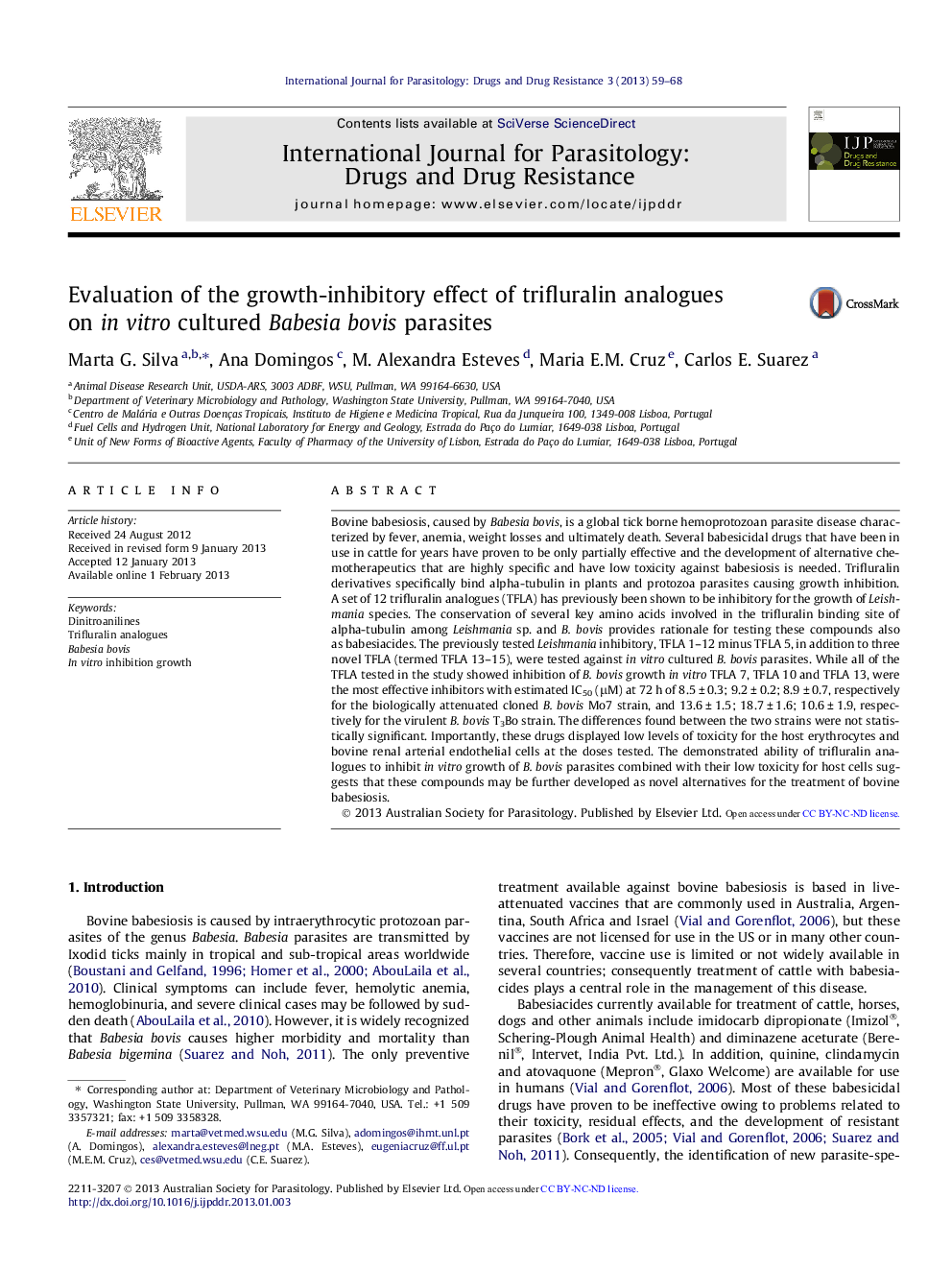| Article ID | Journal | Published Year | Pages | File Type |
|---|---|---|---|---|
| 2055141 | International Journal for Parasitology: Drugs and Drug Resistance | 2013 | 10 Pages |
Bovine babesiosis, caused by Babesia bovis, is a global tick borne hemoprotozoan parasite disease characterized by fever, anemia, weight losses and ultimately death. Several babesicidal drugs that have been in use in cattle for years have proven to be only partially effective and the development of alternative chemotherapeutics that are highly specific and have low toxicity against babesiosis is needed. Trifluralin derivatives specifically bind alpha-tubulin in plants and protozoa parasites causing growth inhibition. A set of 12 trifluralin analogues (TFLA) has previously been shown to be inhibitory for the growth of Leishmania species. The conservation of several key amino acids involved in the trifluralin binding site of alpha-tubulin among Leishmania sp. and B. bovis provides rationale for testing these compounds also as babesiacides. The previously tested Leishmania inhibitory, TFLA 1–12 minus TFLA 5, in addition to three novel TFLA (termed TFLA 13–15), were tested against in vitro cultured B. bovis parasites. While all of the TFLA tested in the study showed inhibition of B. bovis growth in vitro TFLA 7, TFLA 10 and TFLA 13, were the most effective inhibitors with estimated IC50 (μM) at 72 h of 8.5 ± 0.3; 9.2 ± 0.2; 8.9 ± 0.7, respectively for the biologically attenuated cloned B. bovis Mo7 strain, and 13.6 ± 1.5; 18.7 ± 1.6; 10.6 ± 1.9, respectively for the virulent B. bovis T3Bo strain. The differences found between the two strains were not statistically significant. Importantly, these drugs displayed low levels of toxicity for the host erythrocytes and bovine renal arterial endothelial cells at the doses tested. The demonstrated ability of trifluralin analogues to inhibit in vitro growth of B. bovis parasites combined with their low toxicity for host cells suggests that these compounds may be further developed as novel alternatives for the treatment of bovine babesiosis.
Graphical abstractFigure optionsDownload full-size imageDownload as PowerPoint slideHighlights► Newly synthetized trifluralin analogues (TFLA). ► In vitro Babesia bovis growth inhibition effects by TFLA. ► Highest growth inhibition obtained using TFLA 7, 10 and 13. ► Low cytotoxic effect of TFLA on host bovine erythrocytes.
